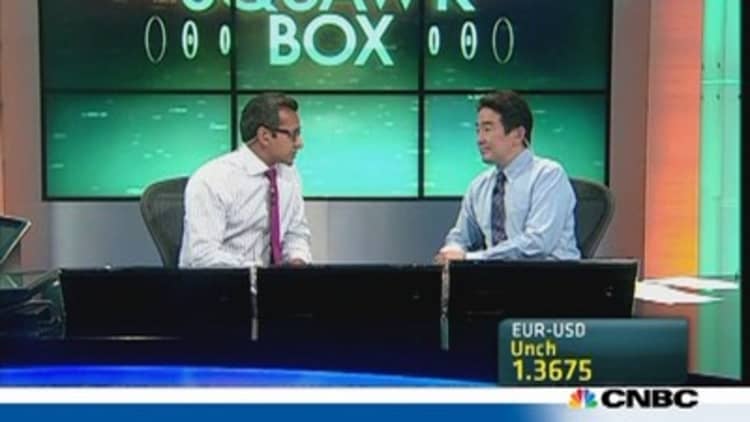The dollar held steady against the yen and the Swiss franc on Monday, stabilizing against those safe-haven currencies after losses last week stemming from a selloff in emerging markets assets picked up pace.
Expectations the Federal Reserve may further reduce its bond-purchase stimulus this week halted the decline in the dollar, which has fallen nearly 2 percent in the past three sessions.
The greenback is vulnerable to more losses if more investors scramble out of emerging markets on concerns about a foreign exchange crisis in Argentina and the Turkish central bank's ability to keep interest rates low. The stampede out of emerging economies has rippled across global markets.
A rebound in two-year Treasury yields helped the to 102.66 yen, up 0.4 percent on the day. It had fallen to 101.77 yen, its lowest since early December, in early Asian trade when liquidity was thin.
The dollar rose against the Swiss franc, bouncing from a one-month low struck on Friday. The euro also rose 0.3 percent to 1.2265 francs having fallen to a one-month low of 1.2227 francs on Friday when demand for the yen and Swiss franc intensified.
"Emerging market currencies remain vulnerable to a sell off if the Fed continues to taper and that should keep the dollar supported," said Jane Foley, senior currency strategist at Rabobank.
"Against the yen, there is a great deal of short yen bets, so we may see a move lower before the dollar can rise again."
(Read more: Who pulled the trigger on emerging markets?)
Data from the U.S. Commodity Futures Trading Commission showed speculators' net yen short positions stood at 114,961 contracts, near a 6-1/2-year high of 143,822 contracts set late December.
Some of the nervousness was reflected in the options market where one-month implied volatility—a measure of how sharp swings are likely to be—in dollar/yen rose to its highest in five weeks. The one-month dollar/yen implied vol rose to 9.7 percent, having traded at 7.95 percent on Thursday.

"The yen is now the only G10 currency that consistently trades as a safe haven and as such, should be the natural beneficiary of ongoing pressure on EM currencies," said Adam Cole, head of G10 FX strategy at RBC Capital.
Emerging market (EM) currencies from Turkey to Argentina remained under pressure, making investors nervous that the shakeout in markets could lead to a full-blown crisis.
Some of the selling had its roots in domestic factors. In Turkey, a graft investigation is posing one of the biggest threats to Prime Minister Tayyip Erdogan's 11-year rule, while Argentina abandoned support of its peso on the open market last week, sending the currency skidding to its biggest drop since the 2002 financial crisis.
(Read more: Are emerging markets on brink of another crisis?)
Currencies
An underlying concern is less accommodative U.S. monetary policy which is encouraging a shift of funds back to the United States from emerging markets. These markets had enjoyed a flood of cheap money from the Federal Reserve's money printing programme, known as quantitative easing.
The Fed meets this week and is expected to reduce its bond buying program by $10 billion.
(Read more: Did the Fed sink theemerging markets?)
In addition, tightening credit conditions in China as the government seeks to curb growth in high-risk lending heightened fears about a possible slowdown in Asia's economic powerhouse.
The euro slipped against the dollar to $1.3672, having risen to a session of $1.3716 after German IFO numbers. German business morale climbed in January to its highest level since July 2011, suggesting Europe's largest economy is on track for a strong start to 2014.
—By Reuters

